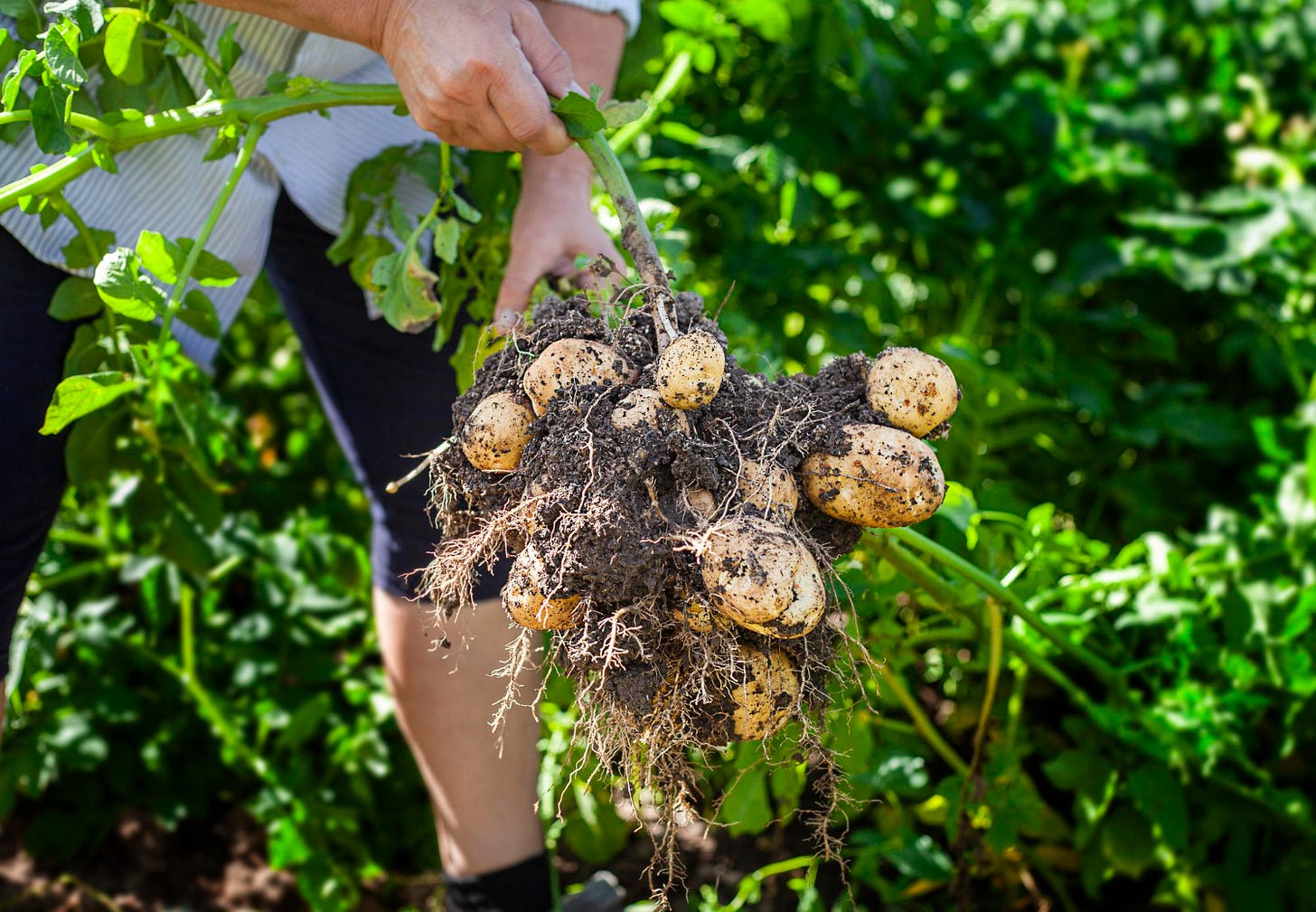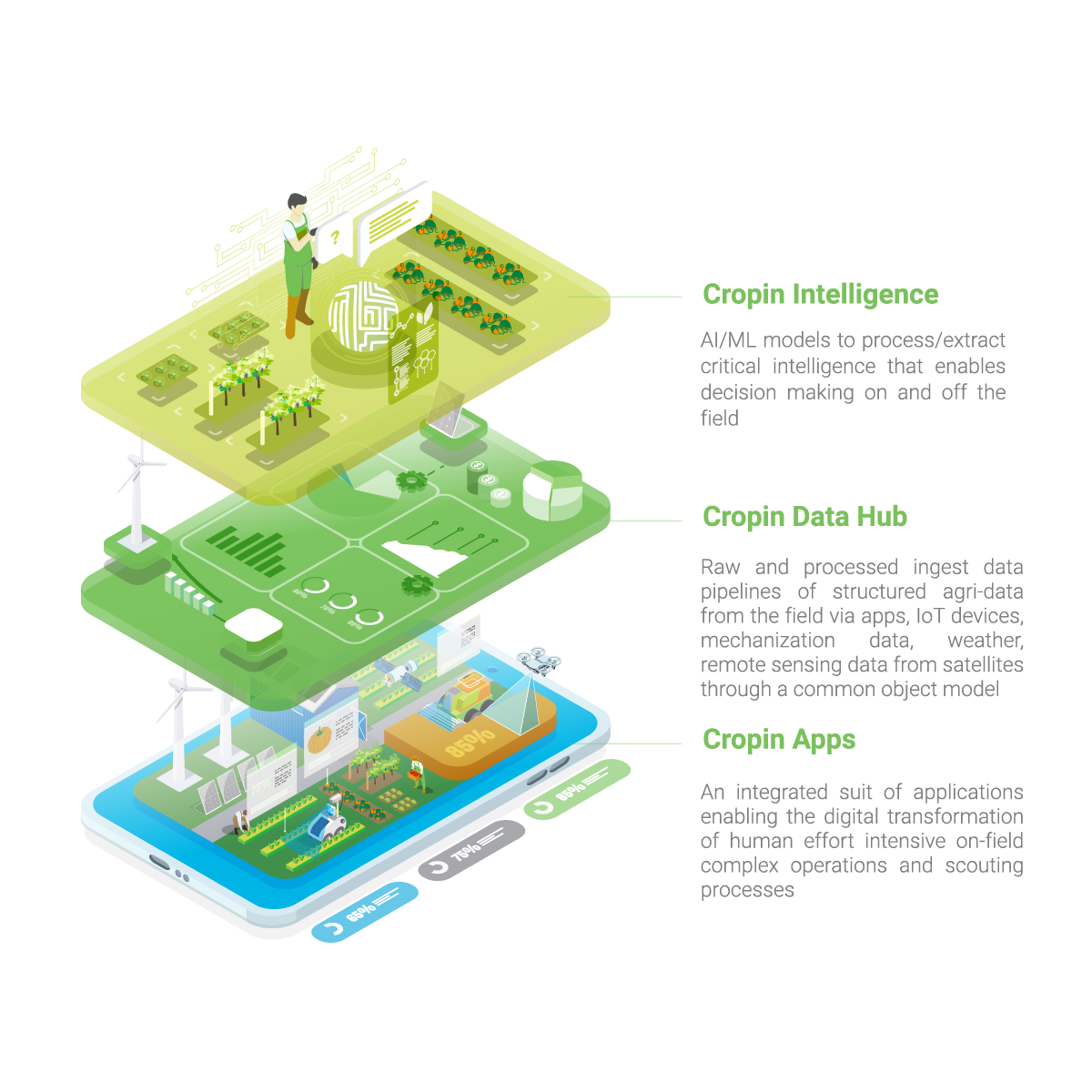The UK will be a pilot location for a Europe-wide project designed to validate and verify the impact of regenerative farming practices in potato production.
The project, led by agricultural AI pioneer Cropin and funded by a €700,000 (£605,000) grant from the EU’s EIT Food innovation agency, is thought to be the first to apply ‘big data’ to regenerative practices.
It will use real-time field data, computer models and predictive analytics to secure objective data points that can be used to verify the effects of regenerative methods without compromising potato crop yield or quality, including the dry matter content sought by processors.
Known as FIRST Potato – Field Intelligence for Regenerative Agriculture and Sustainability in Potato Farming – Cropin’s AI-powered initiative is designed to encourage the adoption of regenerative practices across Europe. It brings together a consortium of food processors, research institutions and sustainability leaders to accelerate the transition from conventional to regenerative practice.
“As regenerative agriculture gains momentum, the absence of verifiable, measurable outcomes poses a real challenge to meaningful, scalable impact,” says Krishna Kumar, CEO and Founder of Cropin.
“Without robust digital systems, farmers struggle to consistently uphold regenerative principles. Through AI, data intelligence, and real-time decision-support, we are bridging this critical gap, bringing precision, accountability, and scale to regenerative agriculture.
“With FIRST Potato, our goal is to help farmers adopt climate-smart practices that are both profitable and scientifically validated.”
FIRST Potato will pull together data from sensors, satellite imagery, weather stations and IoT devices to deliver plot-specific daily advisories to growers, tailored to soil profile and microclimatic conditions. By enabling optimised irrigation, input usage and residue management, Cropin’s precision and predictive technology will help farmers manage the tricky triangle of optimal yield, reduced inputs and the vital quality consistency demanded by potato processors in producing crisps and chips.
Processors need potatoes with high dry matter content. Regen practices can meet these demands – thus satisfying CSR and sourcing requirements – but evidence shows yields can fall in the early years of transition. Cropin hopes to use its precision and predictive technology to help farmers deliver the regen benefits of soil health and improved climate resilience, while maintaining yield potential and quality expectations.
Initially, the scientific validation will be carried out on farms in Denmark, where Cropin has partnered with Aarhus University, a globally recognized leader in sustainable agriculture research. However, the first commercial pilots will involve a UK potato processor, with a second to follow in Germany.
“This deployment will deliver collective benefits,” adds Mr Kumar. “Growers enhance their profitability, brands meet their sustainability targets, and regenerative practices benefit the planet. It’s a win-win for the entire agri-food ecosystem.”
Cropin is actively engaging in strategic commercial partnerships and pilot deployments across Europe and the UK. The company is in advanced discussions with several leading UK and Europe-based agri-food brands and expects to close multiple regenerative agriculture pilots in the region before the end of the current financial year.





